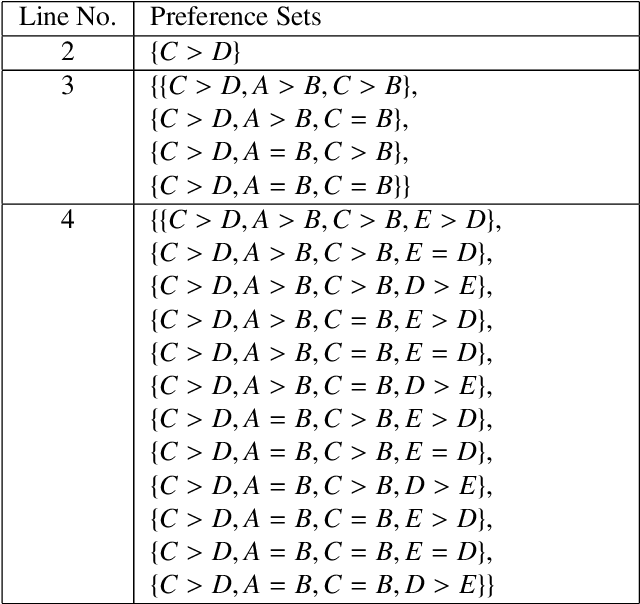An Extension-based Approach for Computing and Verifying Preferences in Abstract Argumentation
Paper and Code
Mar 26, 2024



We present an extension-based approach for computing and verifying preferences in an abstract argumentation system. Although numerous argumentation semantics have been developed previously for identifying acceptable sets of arguments from an argumentation framework, there is a lack of justification behind their acceptability based on implicit argument preferences. Preference-based argumentation frameworks allow one to determine what arguments are justified given a set of preferences. Our research considers the inverse of the standard reasoning problem, i.e., given an abstract argumentation framework and a set of justified arguments, we compute what the possible preferences over arguments are. Furthermore, there is a need to verify (i.e., assess) that the computed preferences would lead to the acceptable sets of arguments. This paper presents a novel approach and algorithm for exhaustively computing and enumerating all possible sets of preferences (restricted to three identified cases) for a conflict-free set of arguments in an abstract argumentation framework. We prove the soundness, completeness and termination of the algorithm. The research establishes that preferences are determined using an extension-based approach after the evaluation phase (acceptability of arguments) rather than stated beforehand. In this work, we focus our research study on grounded, preferred and stable semantics. We show that the complexity of computing sets of preferences is exponential in the number of arguments, and thus, describe an approximate approach and algorithm to compute the preferences. Furthermore, we present novel algorithms for verifying (i.e., assessing) the computed preferences. We provide details of the implementation of the algorithms (source code has been made available), various experiments performed to evaluate the algorithms and the analysis of the results.
 Add to Chrome
Add to Chrome Add to Firefox
Add to Firefox Add to Edge
Add to Edge